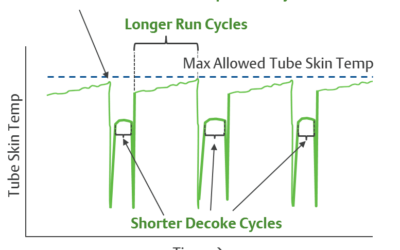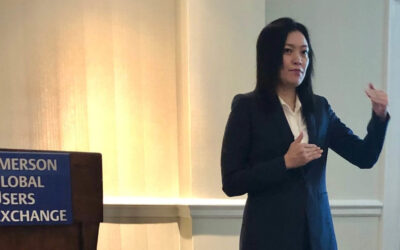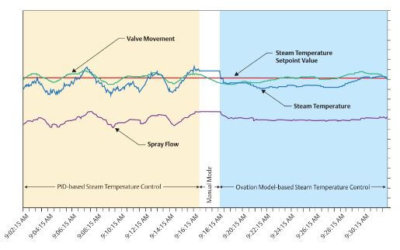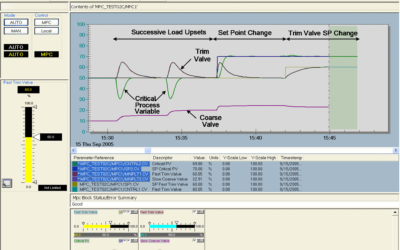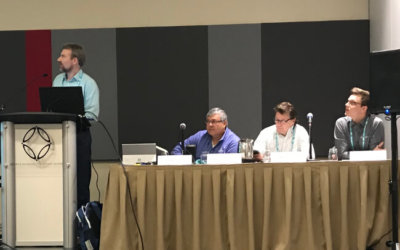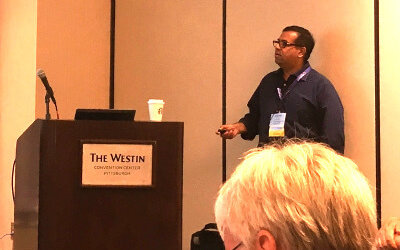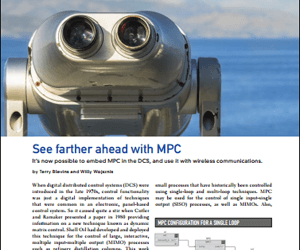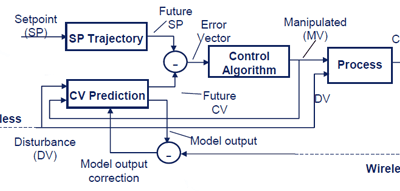One of Emerson’s Principle Consultants, Lou Heavner, was recently asked a series of questions about process optimization in the mining industry. Here are Lou’s answers to the questions asked.
MPC
Ethylene Furnace Automation, Control & Optimization
Cracking furnaces are one of the most crucial parts of an ethylene complex. They set the production and yield for the entire plant. For furnace-limited plants, when a furnace is down, whether for maintenance or decoking, production is lost.
Case Study in Carbon Black Process Optimization
Emerson's Dr. Tiffany Tang presented Novel Idea of Model Predictive Control on Fast Process! First Application at the 2019 Emerson Exchange conference. Here is Tiffany's abstract: Carbon black formation reaction is a fast process in the order of seconds. An...
Improved Steam Temperature Control Strategies
As electrical power producers and cogeneration facilities must handle the load swings produced on the supply and demand side. Optimizing steam temperature control is one key way to improve the reliability of on boilers and heat recovery steam generators (HRSGs) caused...
Applying Embedded Model Predictive Control
The history of model predictive control (MPC) dates back to the early 1970s invented at Shell Oil and was known as Dynamic Matrix Control. MPC was designed at that time to solve largescale control challenges. As technology advanced, this technology could be more...
Improving Control Performance
Today is the final day of the 2018 Emerson Exchange conference. The last session I'm attending is on Control Performance with Emerson's James Beall, Courtney (Eddie) Lane, Dirk Thiele and Aspentech's Alex Kalafatis. After the panel introduced themselves, Dirk opened...
Model Predictive Control in Power Generation
Model predictive control in power generation was the subject of a 2017 Ovation Users Group presentation by Emerson's Ranjit Rao. Rajit opened comparing classical control with model-based control. In classical control, a proportional-derivative-integral loop is used...
Model Predictive Control Tips & Techniques Preview
Moving from the theoretical world of proportional-integral-derivative control to applying it successfully is a hurdle new process control engineers face. Once mastered, the next step might be in applying advanced process controls. Model predictive control, neural...
Wireless Event-Based Control
As wireless communications technology continues to mature, applications have expanded from monitor only to monitor and control. In an earlier post, Event-Based Control in a Wireless World, I mentioned that presentations given by Emerson’s Terry Blevins and Willy...
Controlling with Wireless Devices and MPC
Wireless standards for instrumentation go back to September 2007 when the HART Communications Foundation (now FieldComm Group) announced the official release of the HART 7 specification. This specification included the WirelessHART protocol. As we have chronicled in...
Narrated Wireless and Event-Based Control Advancements Presentations
Yesterday, we highlighted presentations on wireless and event-based control technology advancements by Emerson's Terry Blevins, Willy Wojsznis and Mark Nixon. Terry and Willy presented these advancements at the First International Conference on Event-Based Control,...
Event-Based Control in a Wireless World
The First International Conference on Event-Based Control, Communication, and Signal Processing was held June 17-19, 2015 in Krakow, Poland and took place on the campus of AGH University of Science and Technology. Some of the world leaders in Event-Based Control...
Keep Up to Date With the Latest News and Updates
Follow Us
We invite you to follow us on Facebook, LinkedIn, Twitter and YouTube to stay up to date on the latest news, events and innovations that will help you face and solve your toughest challenges.
Do you want to reuse or translate content?
Just post a link to the entry and send us a quick note so we can share your work. Thank you very much.
Our Global Community
Emerson Exchange 365
The opinions expressed here are the personal opinions of the authors. Content published here is not read or approved by Emerson before it is posted and does not necessarily represent the views and opinions of Emerson.

